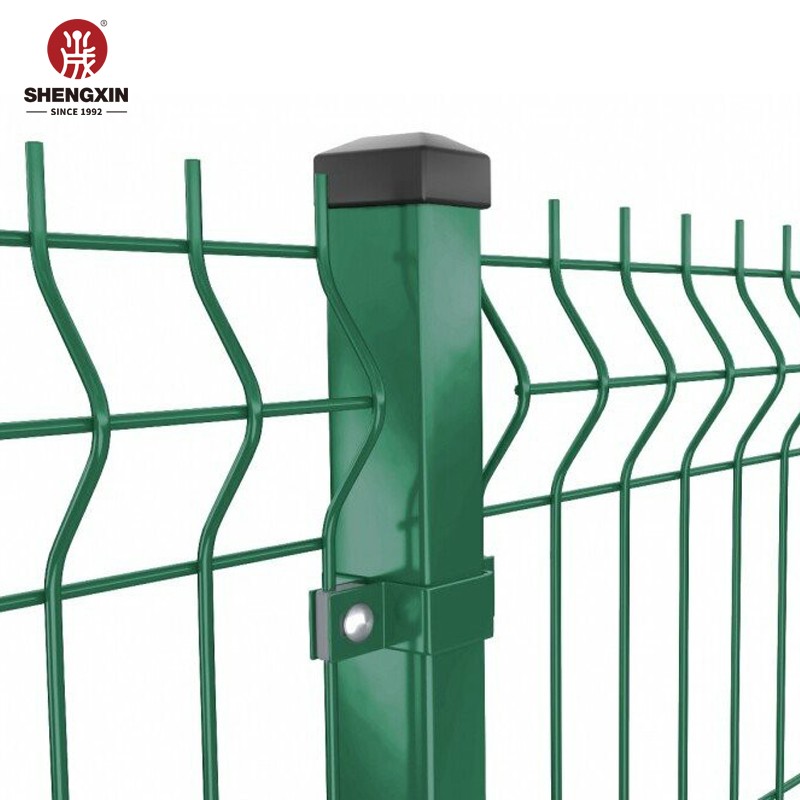
sie . 21, 2024 22:25 Back to list
Metal Farm Fence Manufacturing Solutions for Durable Agricultural Enclosures and Security
Exploring the World of Metal Farm Fence Manufacturing
When it comes to farming, the importance of effective fencing cannot be understated. A reliable fence not only demarcates property boundaries but also plays a crucial role in protecting livestock and crops from intruders. In this context, metal farm fences have emerged as a popular choice due to their durability, strength, and low maintenance. Today, we delve into the critical aspects of metal farm fence manufacturing, exploring the processes, materials, and benefits of these essential structures.
Materials and Types of Metal Fences
Metal farm fences are primarily constructed from materials such as steel, aluminum, and wrought iron. Each material offers distinct advantages. For instance, galvanized steel is often chosen for its corrosion resistance, making it ideal for outdoor conditions where exposure to moisture and harsh weather is common. Aluminum, being lighter and resistant to rust, provides an excellent option for those seeking ease of installation without sacrificing durability. Wrought iron, while heavier and more expensive, conveys a sense of elegance and longevity, making it a great choice for decorative fencing.
Fences can be categorized into several types, including welded wire fences, stock panels, and chain-link fences. Welded wire fences consist of high-tensile wires that provide strength and are often used for larger livestock. Stock panels are pre-fabricated sections that can be easily assembled to create a sturdy barrier, while chain-link fences offer visibility and security, suitable for both livestock and crops.
The Manufacturing Process
The manufacturing of metal farm fences involves several stages, each requiring careful attention to detail and quality control. The process typically begins with sourcing raw materials. Manufacturers must ensure that the metal used is of high quality, as this directly affects the durability of the finished product.
Once the materials are procured, the next step involves cutting and shaping the metal into the desired dimensions. Advanced machinery, such as CNC machines and laser cutters, often facilitates this process, ensuring precision and consistency. Following this, the pieces are welded or assembled according to the specified design. This step requires skilled labor to ensure that each joint is secure and can withstand the tests of time and weather.
farm fence metal factory

After the structural formation, the fences undergo surface treatment. Galvanization, a process that involves coating the metal with a layer of zinc, is commonly applied to prevent corrosion. For aesthetic purposes, powder coating or painting may also be added, giving the fence a sleek appearance while providing additional protection against the elements.
Benefits of Metal Farm Fences
The benefits of choosing metal fences for farm applications are manifold. First and foremost, they offer long-lasting durability, significantly outpacing wooden or plastic alternatives. With proper care, a metal fence can last for decades, providing excellent value for money.
Moreover, metal fences are inherently less susceptible to pests and decay. Unlike wooden fences, which can rot or be eaten by insects, metal structures maintain their integrity over time. This makes them particularly advantageous for farmers looking for long-term solutions.
Another benefit is the level of security they provide. Metal farm fences deter not only unwanted wildlife but also potential thieves, safeguarding both livestock and equipment. Additionally, their strength means they can withstand harsh weather conditions, from strong winds to heavy snowfall.
Conclusion
In conclusion, metal farm fence manufacturing is a critical component of modern agriculture. With a variety of materials and designs available, farmers can choose solutions that best suit their specific needs. The durability, security, and low maintenance of metal fences make them an invaluable asset, allowing farmers to focus on what they do best—nurturing their crops and livestock while ensuring the integrity of their land. As the agricultural landscape continues to evolve, metal farm fences will remain a steadfast ally in the pursuit of efficiency and productivity.
-
Welded Wire Mesh Fence Posts Durable & Custom Solutions
NewsMay.18,2025
-
Security Wire Fence Price List Top Manufacturers & Suppliers
NewsMay.18,2025
-
7ft Black Metal Fence Panels Durable Security & Modern Designs
NewsMay.18,2025
-
Coated Chain Link Fence Durable, Anti-Rust & Custom Sizes
NewsMay.17,2025
-
Affordable Used Chain Link Fence for Sale Factory Pricing & Fast Shipping
NewsMay.17,2025
-
Military Security Fence Solutions High-Strength & Anti-Climb Design
NewsMay.17,2025
